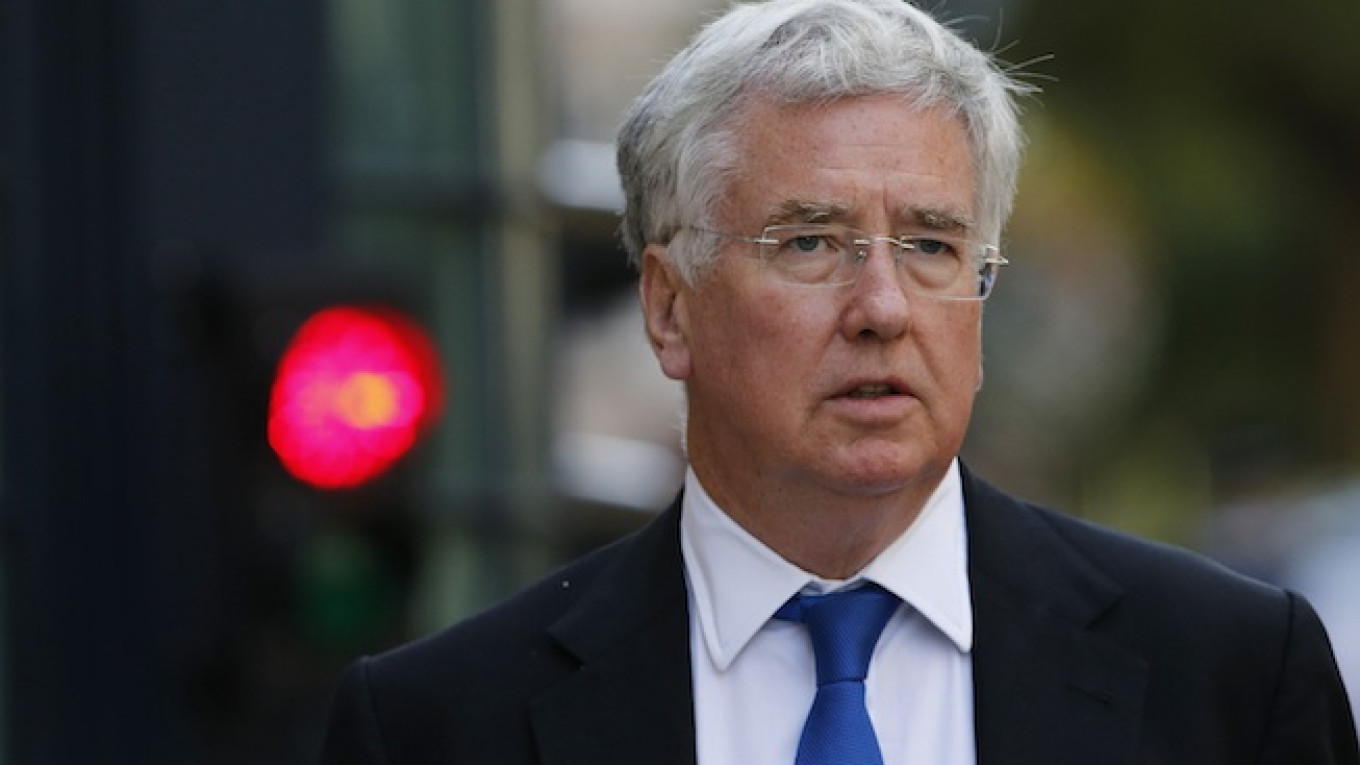MILAN — The European Union must keep up pressure on Russia over its involvement in the Ukrainian war because sanctions are having an effect, British Defense Secretary Michael Fallon has said.
EU ambassadors delayed implementation of a new package of sanctions on Russia on Monday to allow time to see if a cease-fire in Ukraine will hold.
The unexpected decision laid bare divisions within the 28-nation EU over how energetically to pursue sanctions against Russia, which has already taken trade reprisals and threatened more if the EU tightens sanctions further.
Fallon, speaking Tuesday on the sidelines of an EU defense ministers' meeting in Italy that discussed the crises in Ukraine, Iraq and Libya, said the EU must remain determined over sanctions.
"Member states … have all had slightly different positions on it, but it is essential we keep up the pressure," he said.
"The sanctions clearly are working and we are seeing that."
The ball was in Russian President Vladimir Putin's court and "he has to decide whether he wants to face the full force of sanctions or whether he wants to see some progress … The killing has to stop," Fallon said.
Sanctions should not be relaxed "until we see some reciprocity from Russia in terms of moving troops back across the border and heavy equipment back across the border," he said.
EU countries will discuss on Wednesday whether to implement the new sanctions, which include restrictions on financing for Russian state-owned oil companies and banks, an expanded list of people whose assets in the EU will be frozen, and new restrictions on the sale of goods that can be used for both military and civilian purposes.
Disappointed
Russia annexed Ukraine's Crimea region in March and, according to NATO, has several thousand troops in eastern Ukraine supporting pro-Russian separatists.
A cease-fire agreed Friday is broadly holding, officials say, and some EU governments believe it would send the wrong signal to impose more sanctions on Russia now.
Raimonds Vejonis, defense minister of Latvia, one of the more hawkish EU countries towards Russia, said he was disappointed that the latest EU sanctions package had been suspended.
He said it was possible for individual EU countries to supply weapons to the Ukrainian government "and some countries are ready to do it."
A senior aide to Ukraine's President Petro Poroshenko said Sunday that Kiev had agreed at the NATO summit in Wales last week on the provision of weapons and military advisers from five NATO member states, but four of the five swiftly denied any such deal had been reached.
Chairing the meeting on behalf of the current EU president Italy, Italian Defense Minister Roberta Pinotti said EU sanctions "could be eliminated" if the situation in Ukraine improved.
"There is and there must be space for politics, but first and foremost the armed conflict must cease, hence the great importance of the cease-fire agreed by the parties last Friday," she said.
She said it was for individual EU member states to respond to Ukrainian requests for military assistance.
Finnish Defense Minister Carl Haglund denied that Finland had been one of the countries pushing for the latest EU sanctions package to be suspended.
But he told reporters: "We have to take into account what is happening and it would be very unwise to cause a situation where the peace process would go in the wrong direction because of the sanctions."
Haglund said it remained to be seen when the new sanctions would take effect, adding: "I think that is more for the [EU] foreign affairs ministers to decide."
Czech Defense Minister Martin Stropnicky said his country had not been reluctant to back new sanctions on Monday "but we didn't want to sign a blank check."


